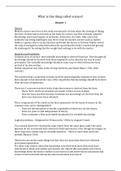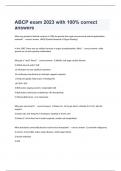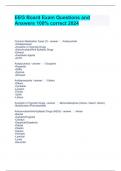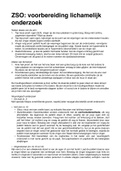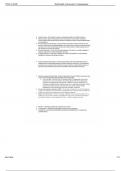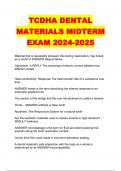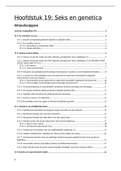Samenvatting
Summary What is this thing called science - Week 1
- Instelling
- Universiteit Leiden (UL)
Summary of the most important pieces in the three chapters that will be discussed during the first week of the course Psychology and Science. Contains chapters 1, 2 and 4 of 'What is this thing called science?'. Written in English. Will upload each week with the chapters discussed that previous wee...
[Meer zien]
